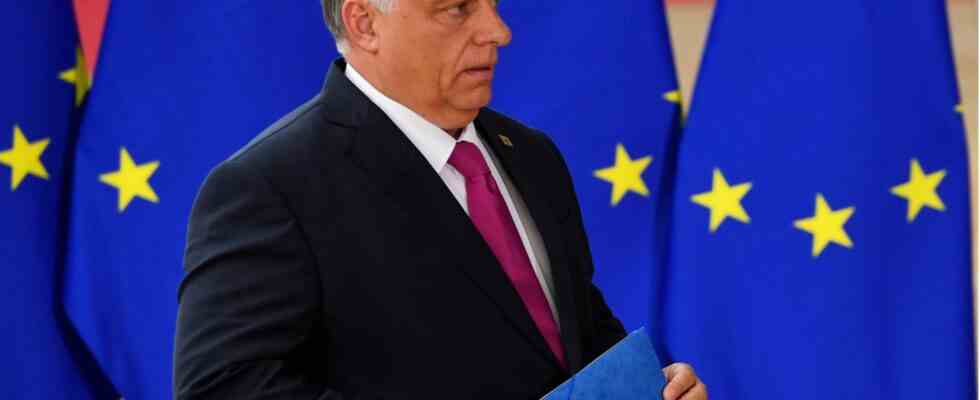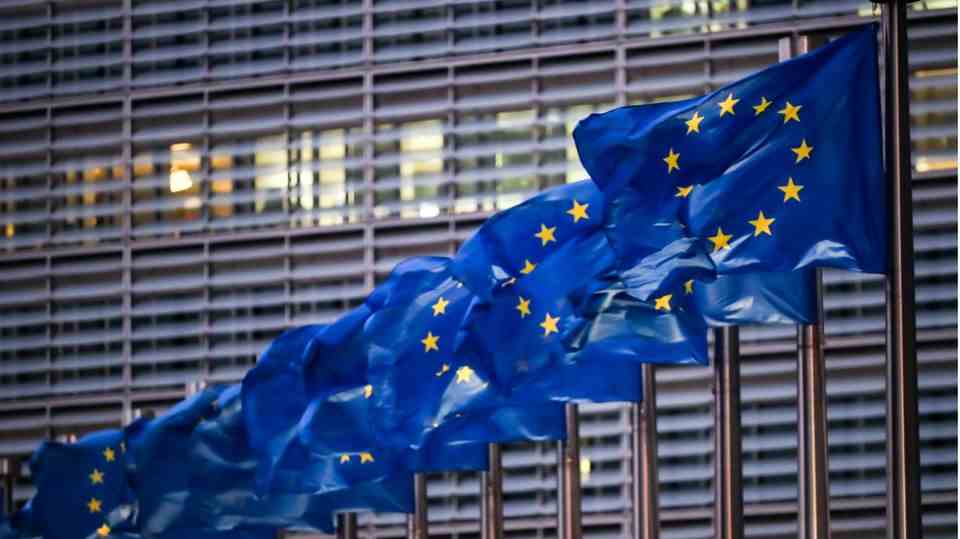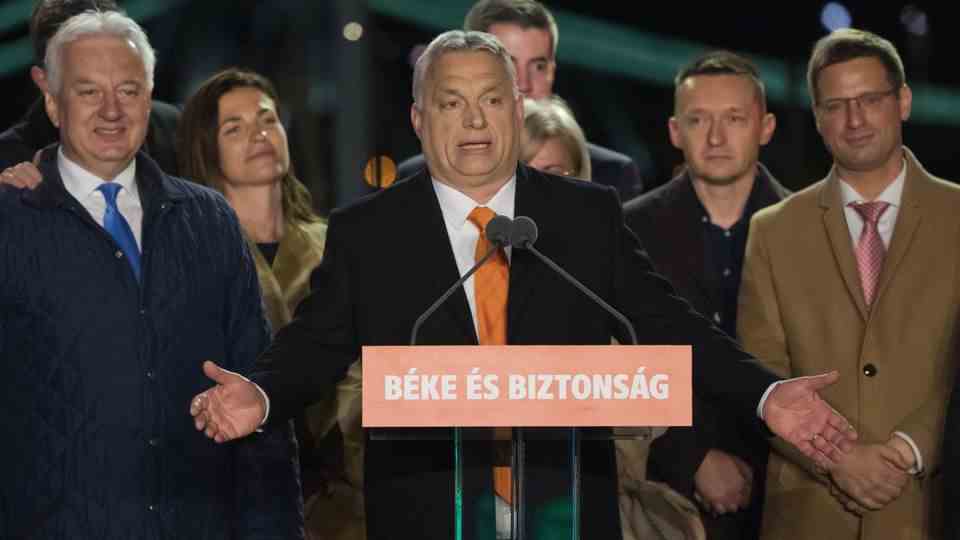Defeat for Victor Orban
EU countries block Hungary billions – why the deal is so important
For Hungarian President Victor Orban, the EU decision is a crushing defeat
© Geert Vanden Wijngaert / DPA
Is the majority enough or not? Until recently, it was unclear whether enough other countries besides Germany would vote for the freezing of EU funds for Hungary. Now there is clarity. Why the deal is so important.
Hungarian Prime Minister Viktor Orban has suffered a major defeat in his fight against the withdrawal of EU funds for his country. Due to concerns that funds in Hungary will be misappropriated due to insufficient anti-corruption measures, 6.3 billion euros are to be blocked for the time being according to a majority decision in the group of other EU countries. This was announced by the current Czech EU Council Presidency on Tuesday night after a meeting of the permanent representatives of the member states in Brussels. The agreement, which can only be decided formally, has historical dimensions; such action against an EU state has never happened before.
The sum of 6.3 billion euros is around 1.2 billion euros lower than proposed by the EU Commission and desired by countries like Germany. However, the agreement is still considered a great success as Hungary is now under pressure to implement further reforms to improve the rule of law. The sum was reduced because several EU countries wanted to acknowledge that Orban’s right-wing government had already made efforts in this direction in recent weeks.
agreement on other issues as well
In addition, on Monday evening other EU states persuaded Hungary to give up weeks of resistance to new aid to Ukraine and an important directive on the implementation of the international minimum tax for large companies. According to diplomats, the background was the threat from countries like Germany to block approval of the Hungarian plan to use EU corona aid. This would have meant that at the end of the year 70 percent of the available EU funds of 5.8 billion euros were irrevocably forfeited.
Hungary’s Corona Aid Plan was approved by the Permanent Representatives Committee on Monday evening following Hungary’s approval of the Minimum Tax Directive and Ukraine Aid. However, this only means that no funds expire. Payments can only be made if a total of 27 requirements are met. These relate, for example, to the effectiveness of the newly established “Integrity Authority” to review suspected cases of corruption and the procedure for the judicial review of public prosecutor’s decisions. This is to ensure that rule of law standards are observed and that EU funds are not misappropriated in the country.
Hungary’s financial troubles
According to EU diplomats, the fact that Orban’s government was able to be put under pressure may also be due to the financially tense situation in the country, which has almost ten million inhabitants. The Hungarian economy is on the brink of recession and criticism of Orban’s economic policy is increasing. The government recently even had to lift a petrol price cap that had been in place for more than a year with immediate effect because it could no longer ensure that it worked.
Why the deal is so important
The agreement was celebrated on Tuesday night, in particular because of the resolutions on the minimum tax and on aid to Ukraine. The aim of the minimum tax is to prevent corporate profits from being shifted to tax havens. International companies with at least 750 million euros in sales per year should therefore pay at least 15 percent tax, regardless of where they are based.
The aim of the Ukraine aid is to provide the country attacked by Russia with loans totaling up to 18 billion euros via the EU in the coming year. The money should make it possible, among other things, to cover current expenses for pension payments, hospitals and schools. Due to a veto by Hungary, it looked until Monday that the necessary guarantees for the loans could not be provided through the EU budget as planned. As an emergency solution, a plan B had already been drawn up over the weekend, which would have required national guarantees.
How it goes on
Formal resolutions by the EU Council of Ministers are now required for the final acceptance of the decisions. They are to be taken in a written procedure by the EU summit on Thursday. This is to ensure that they, heads of state and government, can focus on other issues such as the energy crisis. Unanimity is required for the decisions on the minimum tax directive and the Ukraine aid. At least 15 of the 27 EU countries, which together make up at least 65 percent of the total population of the EU, have to agree to the unprecedented measure against Hungary.
In the past few days, the federal government had already signaled its approval of tough action against Hungary and spoke out in favor of freezing around 7.5 billion euros. “This is about our values, about our rule of law as a European Union as a whole,” said Foreign Minister Annalena Baerbock on Monday on the sidelines of a meeting with colleagues from the other EU member states in Brussels.




